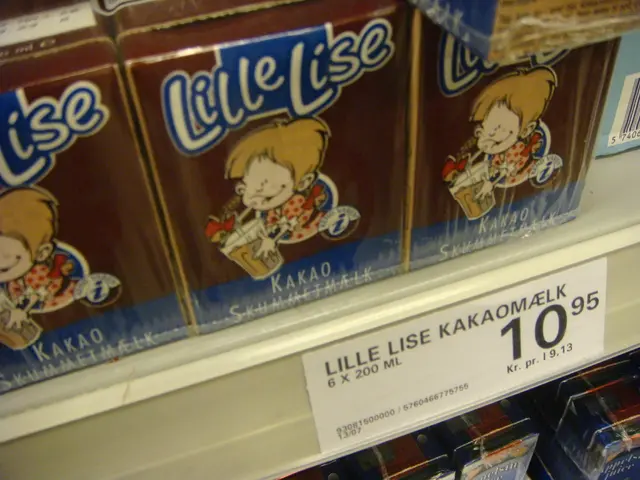Europe experienced a significant rise in liquefied gas imports during April, reaching an all-time high.
🔥💥 Europe's Liquefied Natural Gas (LNG) Imports Reach Unprecedented Levels 💥🔥
Europe smashed its own record for LNG imports in April, with flows reaching approximately 12.8 billion cubic meters, according to Gas Infrastructure Europe (GIE). This figure trumped March's numbers by a mere 1% and represents a 20% increase compared to April 2024.
Europe's hunger for LNG isn't just a one-off surge—it's been a steady trend. And guess who's been taking a hit? Good old Mother Russia. Mid-April reports claimed the US had outdone Russia in LNG supplies to Europe for the first quarter of 2025 by a staggering 8 billion cubic meters. What a slap in the face! Russian LNG imports barely reached 8 million tons, the lowest since 2021.
But don't think the EU is turning its back on Russia completely. As it turns out, the Old Continent isn't quite ready to pull the plug on Russian LNG imports just yet. The EU has hedged its bets, holding onto the hope that maintaining these trading ties will give it a stronger hand in negotiations with the US.
Speaking of the US, it looks like it's no longer just coal and beef that we're battling it out over. We're going full throttle for LNG supremacy. As Europe's gas storage levels hit their highest in three years, it seems our dependence on Russian gas has finally taken its toll. We're drawing a line in the sand, baby!
Now, let's break it down. We're shunning Russian gas for a few strategic reasons:
- Less Moscow, More Us: Reducing our dependence on Russian gas is a no-brainer, considering the geopolitical tensions and supply disruptions brought on by ol' Ukraine drama. We're on a quest for energy security.
- Diversify or Die: By sourcing LNG from various markets, we're beefing up our energy security and reducing the risks of relying on a single supplier.
- Market Mojo: Booming global market dynamics have given the EU the upper hand in stealing LNG market share from Asia, particularly as China's imports slow down.
So, what does all this mean for Russia and the US?
- Russia, You're Slipping: The EU's shift towards other LNG suppliers will result in a lower market share for Russia in Europe. Ouch.
- Russian Economy, Where'd You Go Wrong?: The drop in gas exports to the EU can have serious economic repercussions for Russia, as the energy sector is a major player in its economy.
- Alliances Gonna Alliance: The growth in US LNG exports to the EU will strengthen energy cooperation (and economic ties) between the two superpowers.
- Trade Tussles: The surge in US LNG exports to Europe could potentially offset EU trade deficits with the US in other sectors, leading to more balanced relations and deeper economic integration.
There you have it! Europe's been filling its LNG tanks to the brim, and it's time for Russia and the US to step their game up. After all, the old adage "You snooze, you lose" rings very true in the world of energy politics.
The record-breaking LNG imports by Europe in April, as reported by Reuters, reached approximately 12.8 billion cubic meters and surpassed March's numbers by a marginal 1%. This import level marked a significant 20% increase compared to April 2024.
Phasing out Russian LNG imports and increasing purchases from the US have become strategic moves for Europe, aimed at bolstering energy security and diversifying sources.
As a result of these shifts, the drop in gas exports to the EU could potentially have serious economic repercussions for Russia, given the energy sector's significant role in its economy.
On the other hand, the growth in US LNG exports to the EU could potentially offset EU trade deficits with the US in other sectors, leading to more balanced relations and deeper economic integration.
In the Commission's Energy Strategy published in 2020, they highlighted the goal to reduce the EU's greenhouse gas emissions by at least 55% by 2030. Achieving this objective will require accelerating the development of renewable energy sources and pursuing strategic partnerships with energy-rich nations, such as the US.








